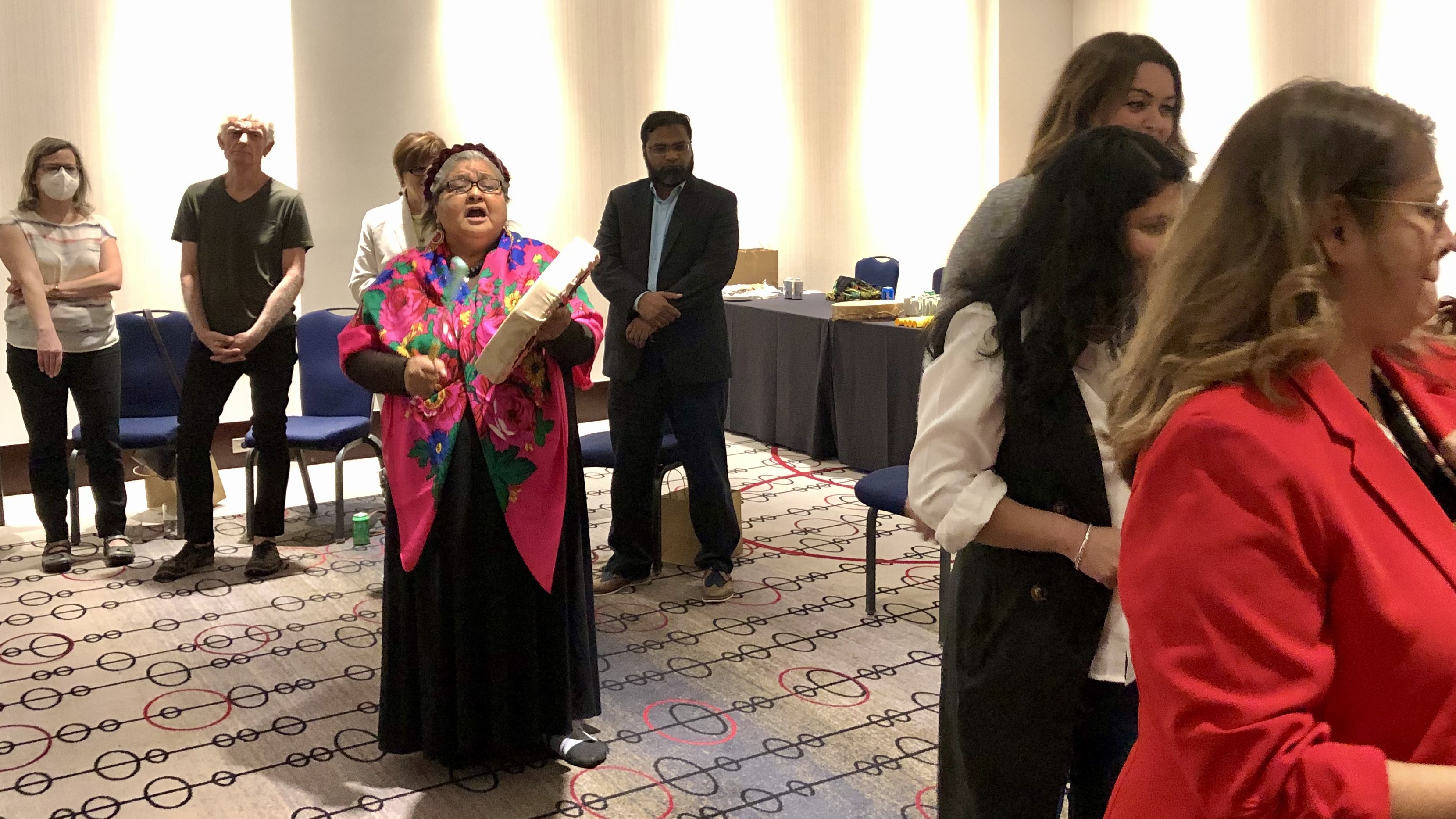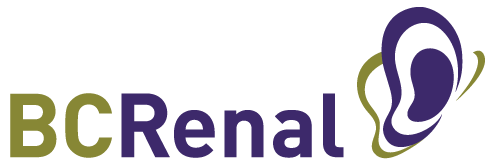On a September afternoon, dozens of BC Renal staff shared the moving experience of participating in the workshop known as the KAIROS Blanket Exercise. For about three hours, they learned from an Indigenous perspective about the history and legacy of colonization and genocide in Canada. The session included a talking circle to reflect on their new knowledge and talk about how they would carry the experience forward in their personal and work lives.
For those who have a role in planning for and providing health care and kidney care in BC, it’s significant to note that Indigenous communities are disproportionately affected by kidney disease as well as diabetes and hypertension – two main risk factors for kidney disease. Also, Indigenous people with advanced kidney disease are less likely than non-Indigenous people to visit a kidney doctor and receive a life-sustaining kidney transplant. These inequities highlight the need for a health system in BC that is culturally safe to improve Indigenous health outcomes and experiences.
The
KAIROS Blanket Exercise was designed to explore the nation-to-nation relationship between Indigenous and non-Indigenous peoples in Canada. Blankets arranged on the floor represent land and participants are asked to step into the roles of First Nations, Inuit and Métis peoples while facilitators take the roles of European settlers, the federal government and other Canadian institutions.
The workshop helps participants understand how the colonization of the land impacted the Indigenous peoples who were here long before settlers arrived, as well as their descendants. It engages participants’ hearts and minds in understanding why the relationship between Indigenous and non-Indigenous peoples is often broken, and discusses how non-Indigenous people can move forward by taking actions to reconcile with Indigenous people.
The September workshop was co-facilitated with warmth and kindness by Elder Kelly White (Musqueam), Elder Sam George (Tsleil Waututh), Shona Sparrow (Syilx), and Samson Whitebear George (Tsleil Waututh). The BC Renal staff – some born in Canada with heritages from around the world, and others who moved to Canada from countries such as India, China, Korea, the Philippines, the Ukraine, Russia, England and Brazil - divided into two rooms to learn and to share their thoughts in a smaller group. In the talking circle after the exercise, the facilitators and BC Renal staff shared many thoughts, emotions and ideas.
“It was a profoundly moving experience for me,” says Gloria Freeborn, Director of Strategic Initiatives, Education and Development with BC Renal. “Both the exercise and the talking circle helped me emotionally integrate the content of not only the San’yas course I previously completed, but also my own personal reading and learning about the legacy of colonization in Canada and the importance of truth and reconciliation. Hearing the stories of our facilitators as well as the voices of my colleagues was impactful.”

Elder Kelly White and facilitator Shona Sparrow begin to lead BC Renal staff in a group thank you activity following the KAIROS Blanket Exercise
We continue to work with PHSA Indigenous Health towards a BC Renal Indigenous strategy. This strategy will focus on building authentic relationships with Indigenous health partners and strengthening cultural safety and humility across the provincial renal network.
Below are some additional actions BC Renal has taken over the past year:
- Embedded cultural safety and humility training into the organizational action plan (supporting participation from all leaders, staff, patient partners and provincial committee chairs/leads)
- Collaborating with BC Transplant and the BRIDGE to Transplantation initiative on the development of a new website, with a focus on storytelling and Indigenous ways of knowing
- Continued to be a funding partner of the Can-SOLVE CKD Network. This includes support for:
- the Kidney Check program, which provides culturally appropriate, individualized diabetes and kidney health screening, support and follow-up in rural and remote Indigenous communities
- a set of webinars and a guidebook to support authentic, purposeful land acknowledgements, which we also incorporated into an all-staff educational session
- Participated in PHSA’s Anti-Indigenous Racism Response Training Pilot Program to help determine the effectiveness of the training modules

